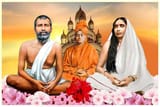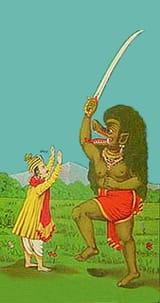>>40852678 (OP)
I was involved in RKM for about a year (I attended services at the Vedanta Society of New York), and while it certainly contains a good deal of truth, there's also a lot of problems in the movement. Ramakrishna has dubious claims to be an incarnation of God (and yes, they do claim that he is), he claimed to have mastered all major religions but spent very little time on some of them. For instance, he claimed to have mastered Islam to the point of becoming one with Mohamed, but if you look at the actual account, he only spent three days practicing Islam before moving on to the next thing. Additionally, the marriage between him and Sarada Devi raises questions about his divinity, he married her when he was in his fifties and she was six years old, and while the marriage was supposedly chaste, he was said to have been so lustful for her when she was a young teen that he almost abandoned his chastity. I fail to see how a supposed incarnation of God would half-ass religious studies (and it's already odd that such a divine incarnation would need to study in the first place) and be so thoroughly tempted by a teenage girl. Furthermore, while I know monistic perennialism is popular on this board, there's a serious problem in the approach (especially when they claim that all religions lead to the same truth) insofar as some religions lean strongly towards dualism. There are even a few religions, like Jainism, which are fundamentally dualistic, making claims of all religions teaching a universal non-dualism hard to accept. I also witnessed some cultish elements at the Vedanta society, like lining up to bow before the portraits of Ramakrishna, Vivekananda, and Sarada Devi, but those elements are secondary to the problems in their claims.
If you're looking for a school of thought that highlights the unity of religions without ignoring their differences in the name of a universal non-dualism, William Blake gives a compelling argument.






